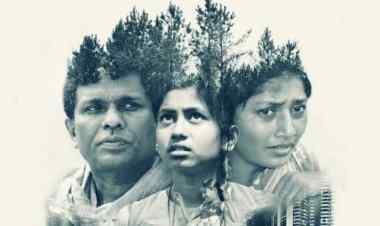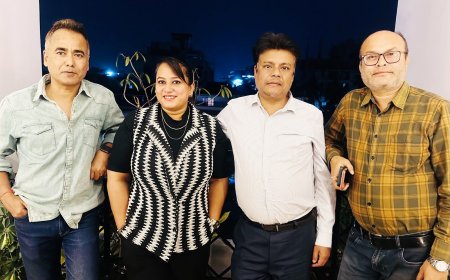Film Review: NOI – A MOVING ASSAMESE FILM BY REEMA BORAH
Shoma A. Chatterji provides a comprehensive analysis of the Assamese film "Noi," directed by the filmmaker Reema Borah.
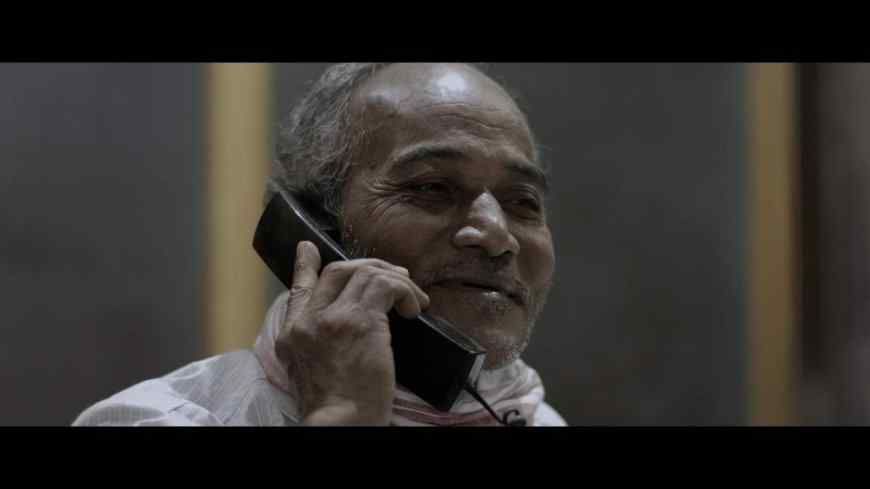
Noi is a beautiful film directed by Reema Borah which, through a strange and intriguing journey undertaken by a elderly fisherman named Bisnu, discovers to his shock, that the state he has lived in all through his life, is not what he felt it was. He understood that the lives of his fellowmen and women across the state were very uncertain, with danger, death, poverty, unemployment lurking at every corner waiting to pounce, unannounced, on simple men, women and children.
Reema Bora is a writer-director from Assam. She was a performing artist and has done her masters in Theatre before joining the Film and Television Institute of India, Pune, to do her post graduate degree in Film Direction. The shorts she has directed as a part of academic projects were showcased at film festivals globally, including Clermont film festival and Camerimage Film Festival. Her films have won the Kodak Film School Competition in 2005 and the National Film Awards in 2009. She wrote and directed Chaatak in 2010 and won special mention at IDPA in 2011.
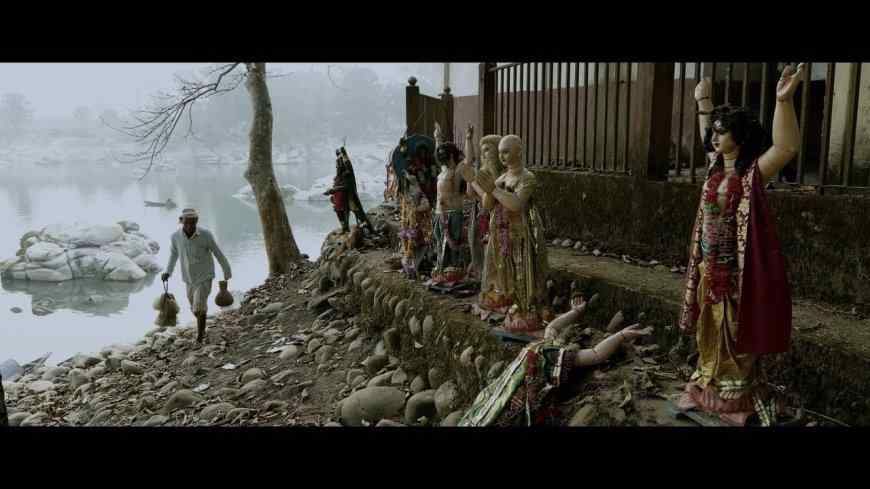
Image: Film still
The film opens with Bisnu arriving at the river in his village where he does his fishing everyday. He has never stepped outside his village right through his life. But one day, he decides on his own to discover the identity of a man whose dead body is trapped in his fishing net. No one in the village is able to identify him. Bisnu decides to set out on a journey right through the state to find out the identity of the dead man on his own. The camera captures the visual beauty of the landscape of the village which is filled with trees, lakes and rivers with a small, simple population where everyone seems to know everyone else. As he is about to embark on the journey, with a tiny bag for company, another elderly man asks him to look for his daughter who ran away and never came back and begs him to appeal to her to return to her father who is very lonely.
Cinematography (Sandeep Patil) brings out the incredible beauty of Nature in Assam through its beautiful natural landscape, the water bodies, the lush greenery, the flight of birds across the blue sky. These however, turn out to be a deceptive facade for the violence that underlies the beautiful visuals. This is what the innocent, naive and very poor Bisnu discovers for the first time in his entire life and is shocked at every revelation yet, internalises these experiences without being vocal at any point. He does not find any clue about the identity of the man whose dead body got trapped in his fishing net and could not be identified. One person he meets urges him to forget the man as the Aadhar Card might not have been his and might have been stolen; he might have been a criminal with a negative past. But Bisnu does not meet a single person who can recognise the man from his name or from the identity card found on his body. The name of a village is mentioned as the place he supposedly came from but though Bisnu travels, mostly on foot, through miles and miles, he cannot locate the village and when he does, he finds that there are other villages carrying the same name. And missing persons in every village.
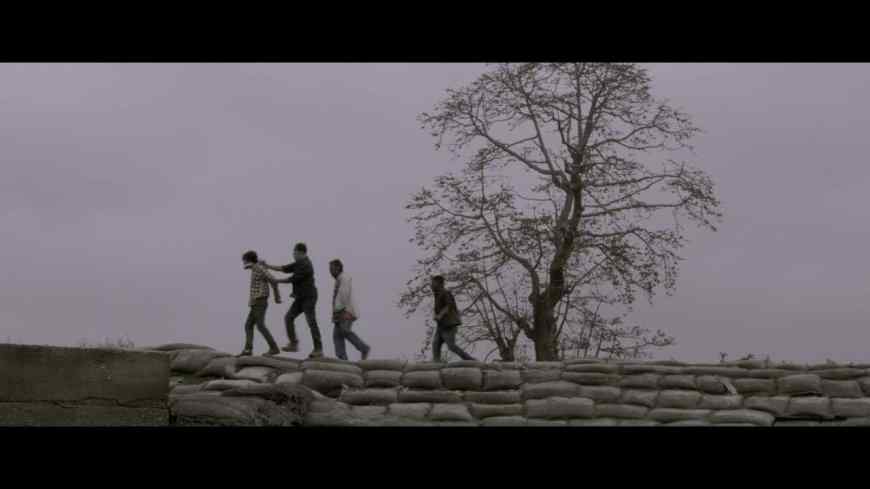
Image : Film Still
Bisnu finds temporary shelter in the home of a woman who once lived in his village as a young girl and was good in dancing and singing. She lives alone with a growing son because her husband was brutally killed who came home once from his hideout, wrongly suspected of belonging to a terrorist outfit. The woman is in dire straits as once, Bisnu spies her stealing greens from the neighbour’s garden. But when Bisnu discovers that she sleeps with an affluent man in the village to make both ends meet, he picks his slim bag and leaves.
He then meets a drunken villager who narrates to him the tragedy in which he lost his wife and tiny kids in a fire created by some anti-social action. He also makes friends with a young traveller who keeps moving from place to place on his speeding two-wheeler just for the sake of travelling without any destination in view. A young non-resident Indian brought up in the US has come purportedly for her sociological research. She offers a lift to Bisnu who finds out that the real purpose of her visit is to find out her father’s assassin and punish him. The assassin, once the leader of an extremist group trying to bring in social change is now living in hiding, all alone. His movement had failed, felling a lot of innocents along the way to doom. Not dissuaded by the once-leader’s tall talks, the researcher gives him a stinging slap before leaving.
Bisnu leaves the researcher without informing her and manages to locate the missing daughter of his village friend. She is doing small roles in a village theatre. She accepts the money her father has sent her but refuses to go back. Bisnu against meets the researcher when he reaches an orphanage set up by a NGO to take care of small children who have lost their parents to the insurgencies in different areas of the state. He has some fun time with the children of different ages who dance and sing around him. He is given some space to sleep when he overhears that the orphanage may be attacked by insurgents and the children need to be moved to a safer place. The film, towards the closure, shows the young NGOs shot down one by one, while Bisnu scuttles to save himself in a dry ditch beside the roads watching them fall dead one by one except one we meet later on.
The sounds of Nature, of local drums played on by a drummer, of bird’s tweets, of the young woman belting out an old song she sang in school are often punctured with sounds of firing, bombs bursting somewhere in the distance, and so on. The shots of the village theatre where the young girl is dressing up and waiting for her cue to enter the performance space, has brilliant dim lighting to underline the shadiness and the poverty of the group and the show. The way Bisnu is beaten and thrown out of the theatre is both touching and shocking.
According to the director Reema Bora, “through the eyes of the fisherman, I have tried to present the state of affairs in the land of Assam, where each village has a missing person irrespective of the cause, and how the story of each person resonates with the same pathos.” But Visnu remains as calm and cheerful as he was when he undertook the journey. He is more surprised than shocked at the discoveries that unveil themselves during the journey.
The film has a linear narrative without any time leaps or flashbacks, but some travellers, like the motorcyclist, or the researcher, meet Bisnu again on the way and then move on. The characters, all of them cameos, are fleshed out enough to leave a mark both on Bisnu, the protagonist and on the audience.
The title of NOI means, “A large natural stream of water emptying into an ocean, lake, or other body of water and usually fed along its course by converging tributaries.” The analogy may be held to stand for Bisnu, an old man and other simple, innocent villagers like him who have never travelled beyond their small world and therefore, venture out to the world beyond led by some trigger set off by accident, incident or intention. The film addressed a larger philosophy of life for those who seek this. But even without this philosophy, the film stands on its own as a film that blends cinematic beauty, social message, and creative aesthetics.
What's Your Reaction?





















































